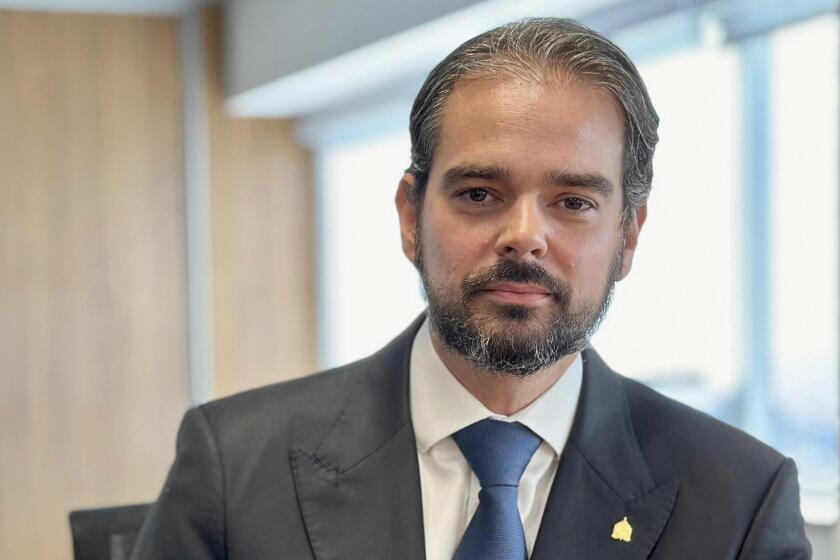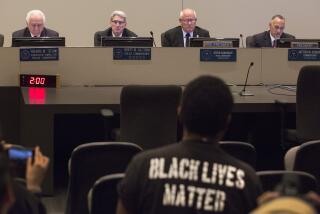Brazilian police official chosen as the next head of Interpol

- Share via
LONDON — Brazilian police official Valdecy Urquiza will be the next chief of Interpol, the global police organization announced Tuesday.
Urquiza was elected secretary-general by a vote of Interpol’s general assembly at its meeting in Glasgow, Scotland, and will take up the post when the gathering ends on Thursday.
Currently Interpol’s vice president for the Americas, Urquiza is the first chief of the Lyon, France-based organization not to come from Europe or the United States.
The Interpol secretary-general essentially runs the organization on a daily basis. Jürgen Stock of Germany, who has held the post since 2014, is not allowed under its rules to seek a third term.
Urquiza pledged to promote diversity within the organization, saying ”a strong Interpol is one that includes everyone.”
Valdecy Urquiza has won a crucial vote of confidence toward becoming the next head of Interpol and its first non-Western chief.
“When we respect and elevate diverse perspectives, we get a clearer, more comprehensive approach to global security,” he said.
Interpol, which has 196 member countries and celebrated its centennial last year, works to help national police forces communicate with each other and track suspects and criminals in fields such as counterterrorism, financial crime, child pornography, cybercrime and organized crime.
The world’s biggest police organization has been grappling with challenges such as a growing caseload of cybercrime and child sex abuse, and increasing divisions among its member countries.
Interpol had a total budget of about $188 million last year, compared to some $11 billion at the FBI in the United States.
More to Read
Sign up for Essential California
The most important California stories and recommendations in your inbox every morning.
You may occasionally receive promotional content from the Los Angeles Times.










